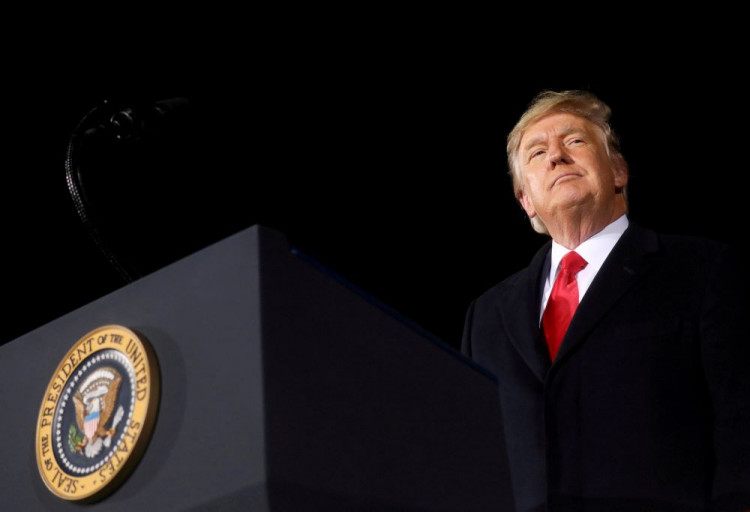Russia used U.S. President Donald Trump as an intelligence asset for 40 years, according to former KGB spy Yuri Shvets in a book just out.
Moscow's spymasters transformed a "narcissistic" young business owner into a "gullible" asset whose pro-Russia stand as U.S. president delighted and even astonished the Kremlin, Shvets says in "American Kompromat" written by Craig Unger.
He also told The Guardian that Trump, who visited Moscow in 1987, was cultivated as a source for more than 40 years.
"This is an example where people were recruited when they were just students and then they rose to important positions: something like that was happening with Trump," Shvets said.
Trump's recruitment commenced with his marriage to his first wife Ivana Zelnickova, a Czech fashion model. Shvets claimed it was Russia that first planted the idea in Trump's head that he should enter U.S. politics.
When Trump and Zelnickova visited Moscow and St. Petersburg in 1987 Trump was flattered by KGB operatives. "For the KGB, it was a charm offensive," Shvets said. "They had collected a lot of information on his personality, so they knew who he was. The feeling was that he was extremely vulnerable intellectually and psychologically and was prone to flattery."
"This is what they exploited. They played the game as if they were immensely impressed by his personality and believed this is the guy who should be the president of the U.S. one day: it is people like him who could change the world. They fed him these so-called active-measures soundbites and it happened. So it was a big achievement for the KGB...at the time."
Shvets said Russia helped Trump's hotel business in the U.S. prosper. Shvets said when Trump opened his first big development in 1990, the Grand Hyatt, New York, the Russians had one of their operatives posing as the owner of an electronics business sell him 200 TV sets on favorable terms.
Unger, the author of seven books, including "House of Trump, House of Putin," claims Trump was a valuable tool for the then Soviet Union.
"He was an asset. It was not this grand, ingenious plan that we're going to develop this guy, and 40 years later, he'll be president," said Unger. "At the time it started, which was around 1980, the Russians were trying to recruit like crazy and going after dozens and dozens of people."
"Trump was the perfect target in a lot of ways: his vanity, narcissism made him a natural target to recruit. He was cultivated over a 40-year period, right up through his election."






